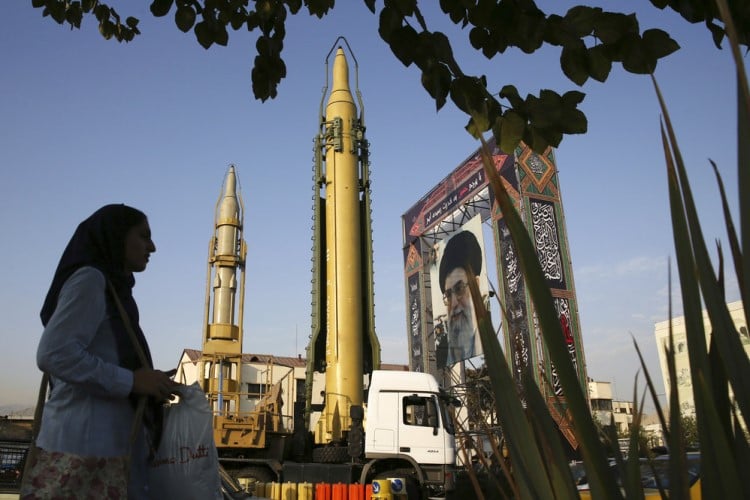I wrote several months ago about the threat of Iranian nuclear weapons development, and its deadly threat to Israel. Today, it seems highly likely that there will be an attack on Iran’s nuclear development facilities soon—probably within the next two or three weeks—certainly by Israel and possibly directly assisted by the United States.
In preparation for such an attack, the last Israeli response—several months ago—to an Iranian missile attack focused entirely on Iran’s air defenses, not on its missile launching capacity, and was said by observers to have resulted in the complete destruction of Iran’s ability to stop an air attack.
This was clearly intended as preparation for an attack on Iran’s nuclear development facilities. These are widely spread within the country and are deeply underground, often under mountains, requiring the use of bunker-buster bombs, which are quite heavy for delivery by the Israeli air force. Accordingly, there have been frequent reports that Israeli and American air forces have been training together in the area.
Over the last several weeks, President Trump has said repeatedly that Iran will never be allowed to develop a nuclear weapon, and has written to Iran’s Supreme Leader asking to start talks on the subject. Iran’s response, at least publicly, has been to threaten the US. that if Iran is attacked the US itself will suffer serious damage.
Either in preparation or in warning, the US has sent six B-2 bombers to Diego Garcia, its air base in the Indian Ocean, a few thousand miles from the potential targets in Iran. The B-2 can carry about 40,00 pounds of bombs, and is capable of delivering the bunker-buster bombs that would be necessary to penetrate and destroy the underground Iranian nuclear development facilities.
The current assessment by international specialists is that Iran has now completed the development of enough nuclear material for five or six bombs, and has developed a missile that might be capable of delivering them, probably only to Israel. However, it is not clear that Iran has created the necessary nuclear warhead. It is the uncertainty on this point that has been driving the effort to stop any further Iranian nuclear weapons development.
It’s possible that Iran—either as a ploy to ward off any attack, or because it has actually finished the task of developing a warhead—will announce that it will employ a nuclear capable missile in response to any attack. Whatever the fact, this must be taken into account by military planners and high level political figures in Israel and the US That’s why an attack on Iran seems imminent if that country does not respond favorably to Trump’s demand for immediate talks. Even if talks occur, of course, at this point they could be used by Iran to play for time.
Although things now finally seem to be coming to a head, Iran has been successful in delaying any serious response to its nuclear development plans for 15 to 20 years. Every US President during that time has attempted to stop Iran’s progress along these lines, but without success.
Now, all agree, we have run out of time.
